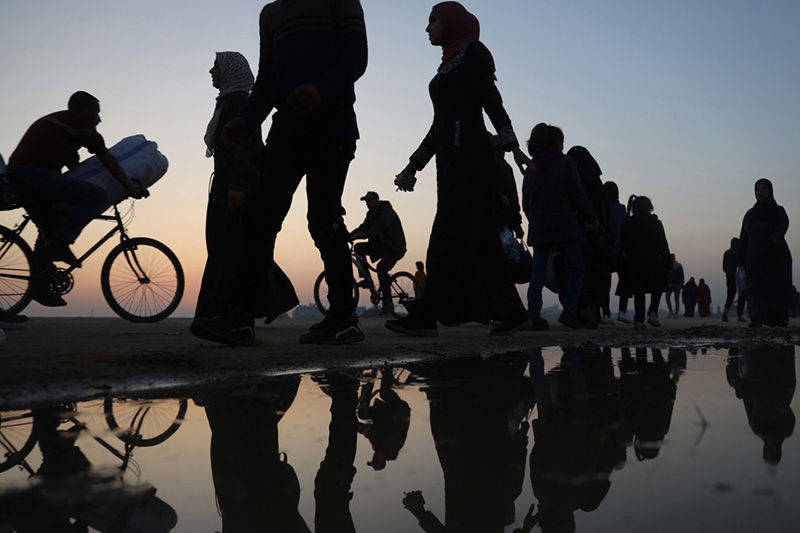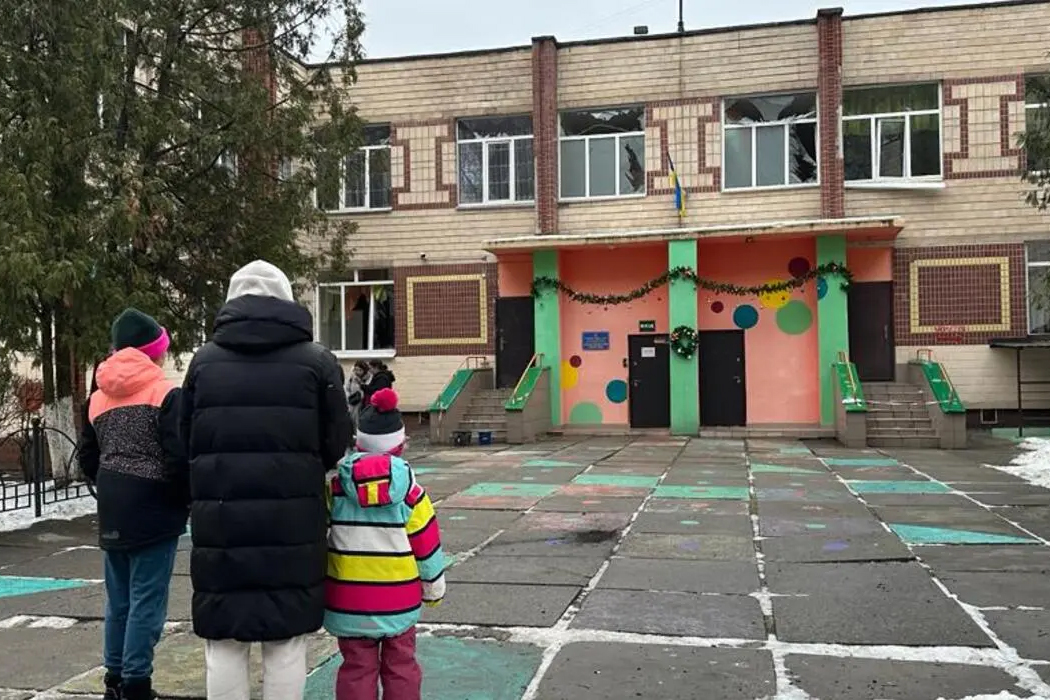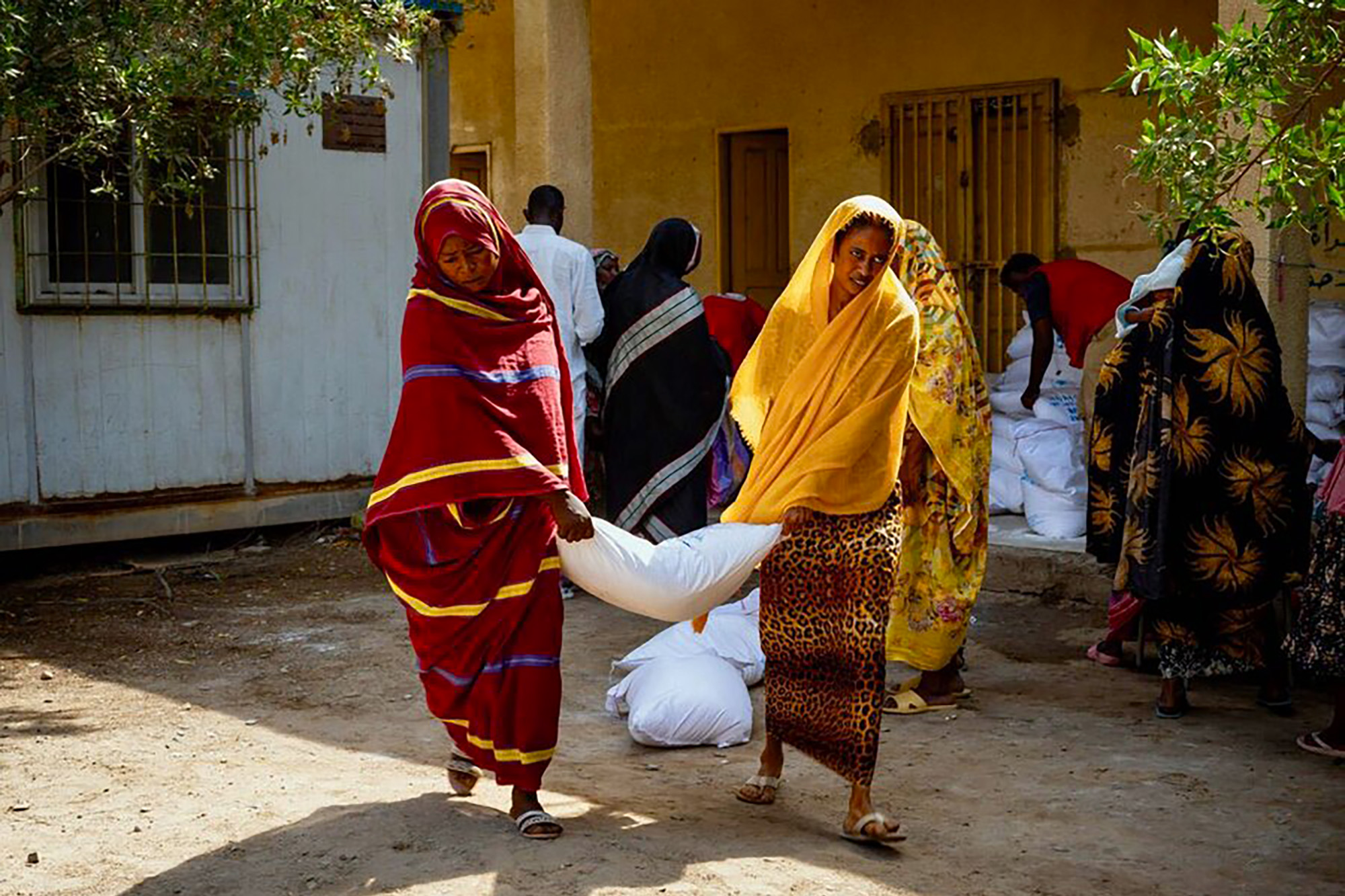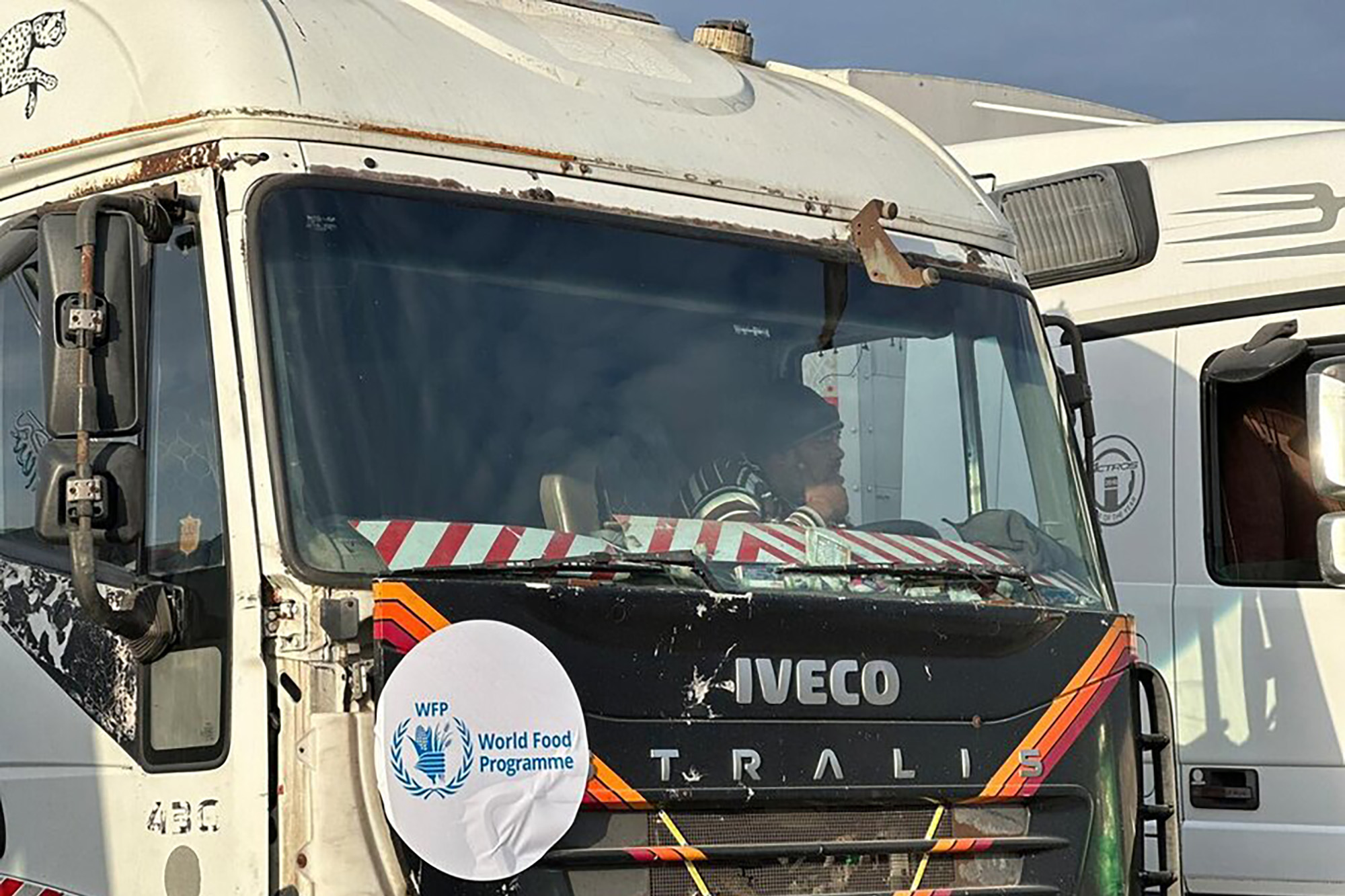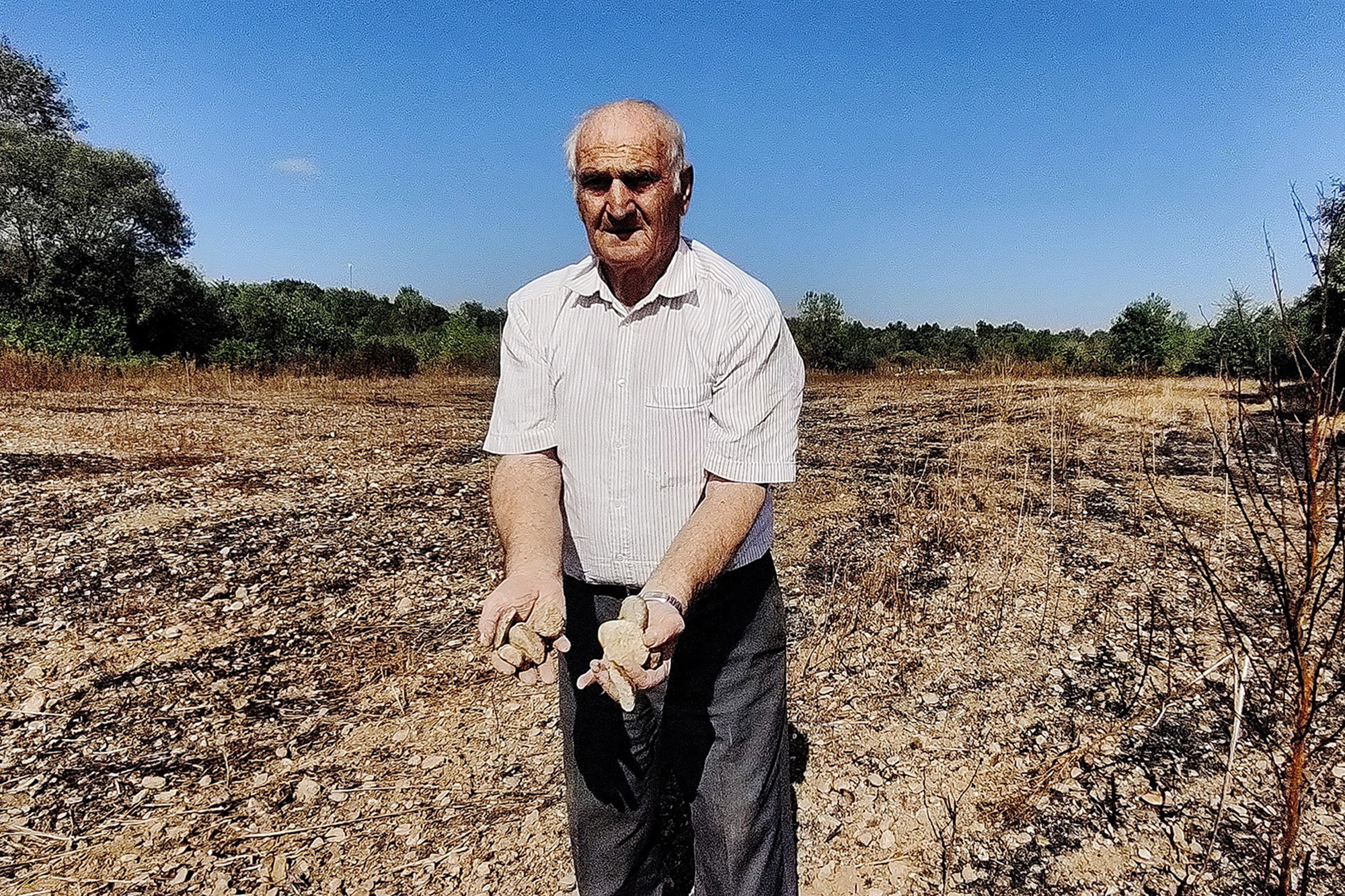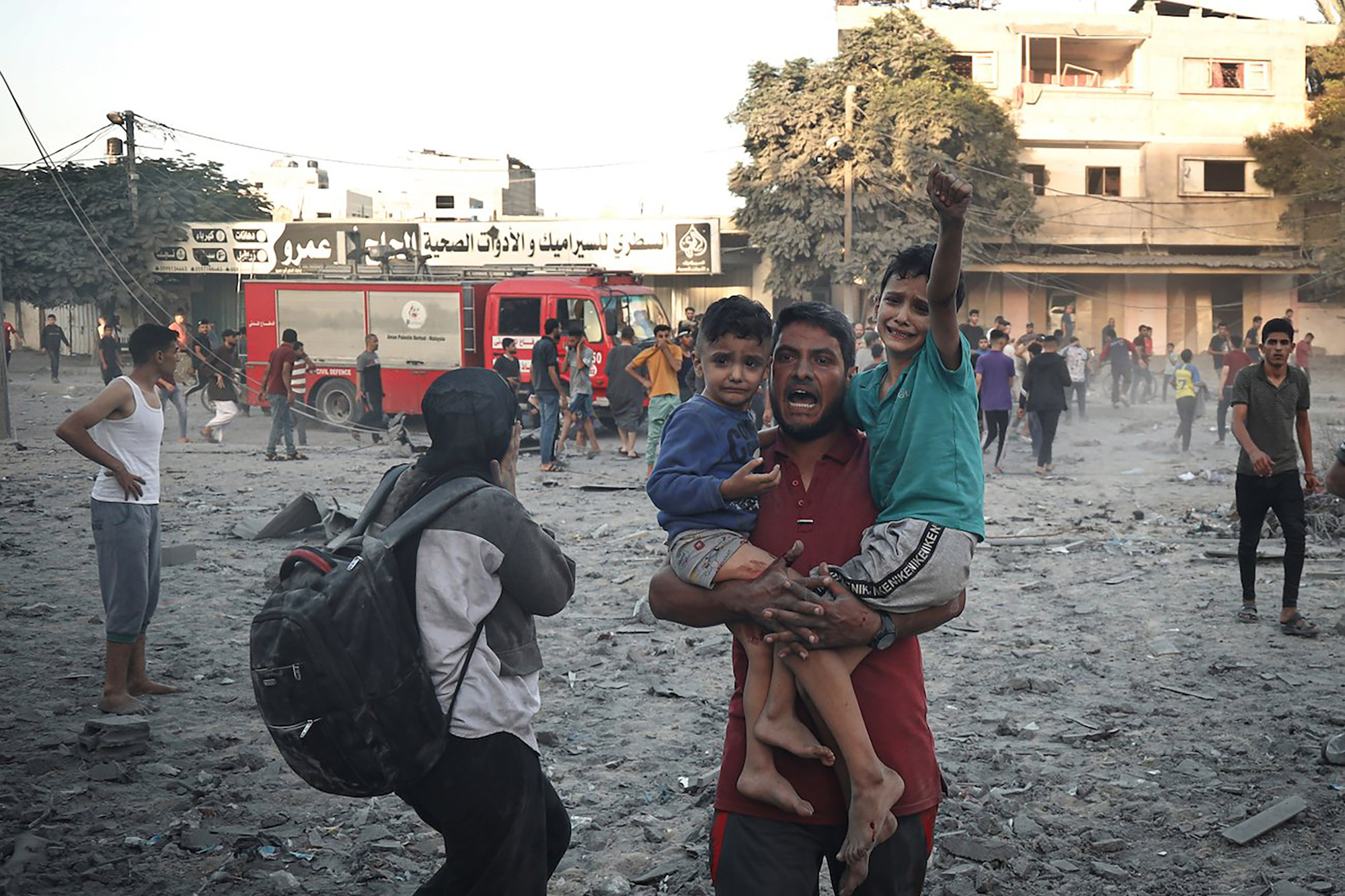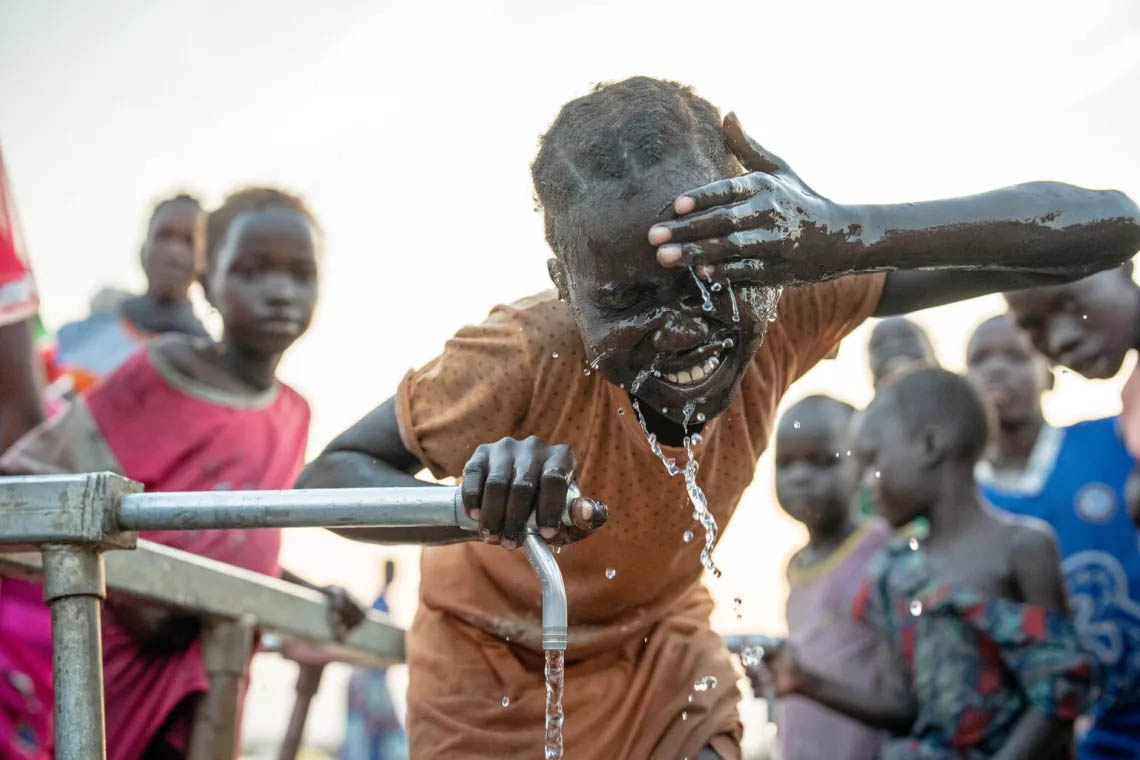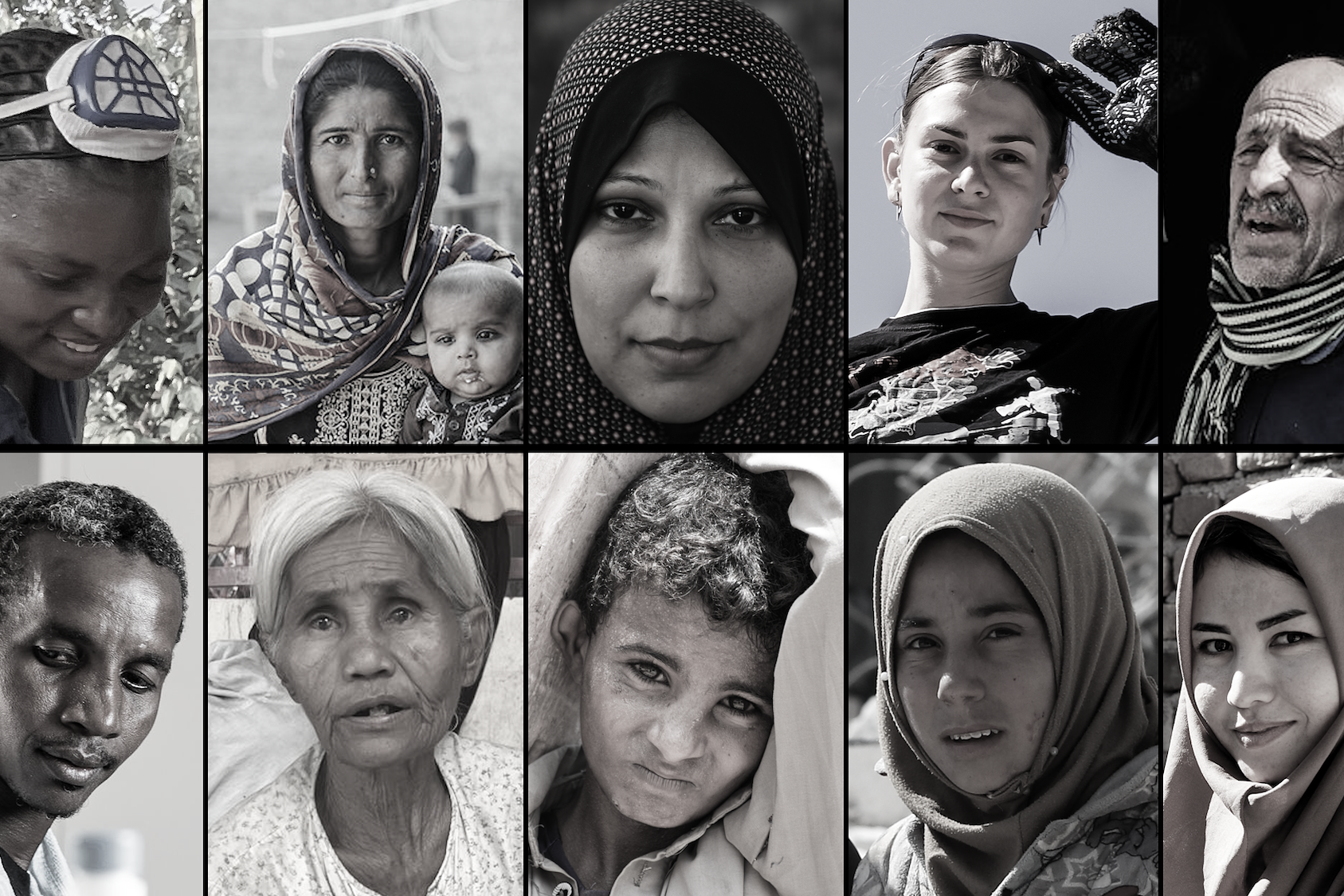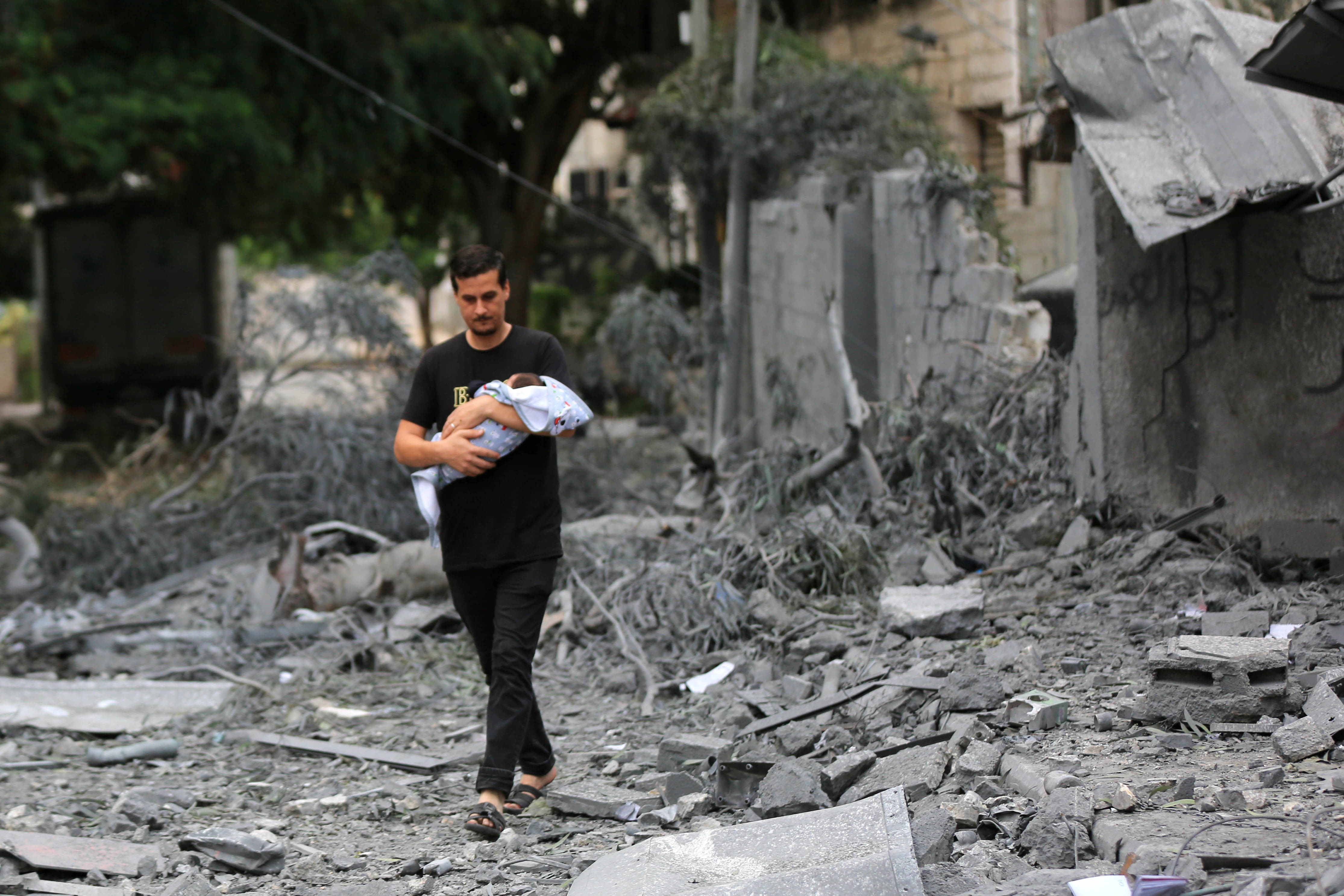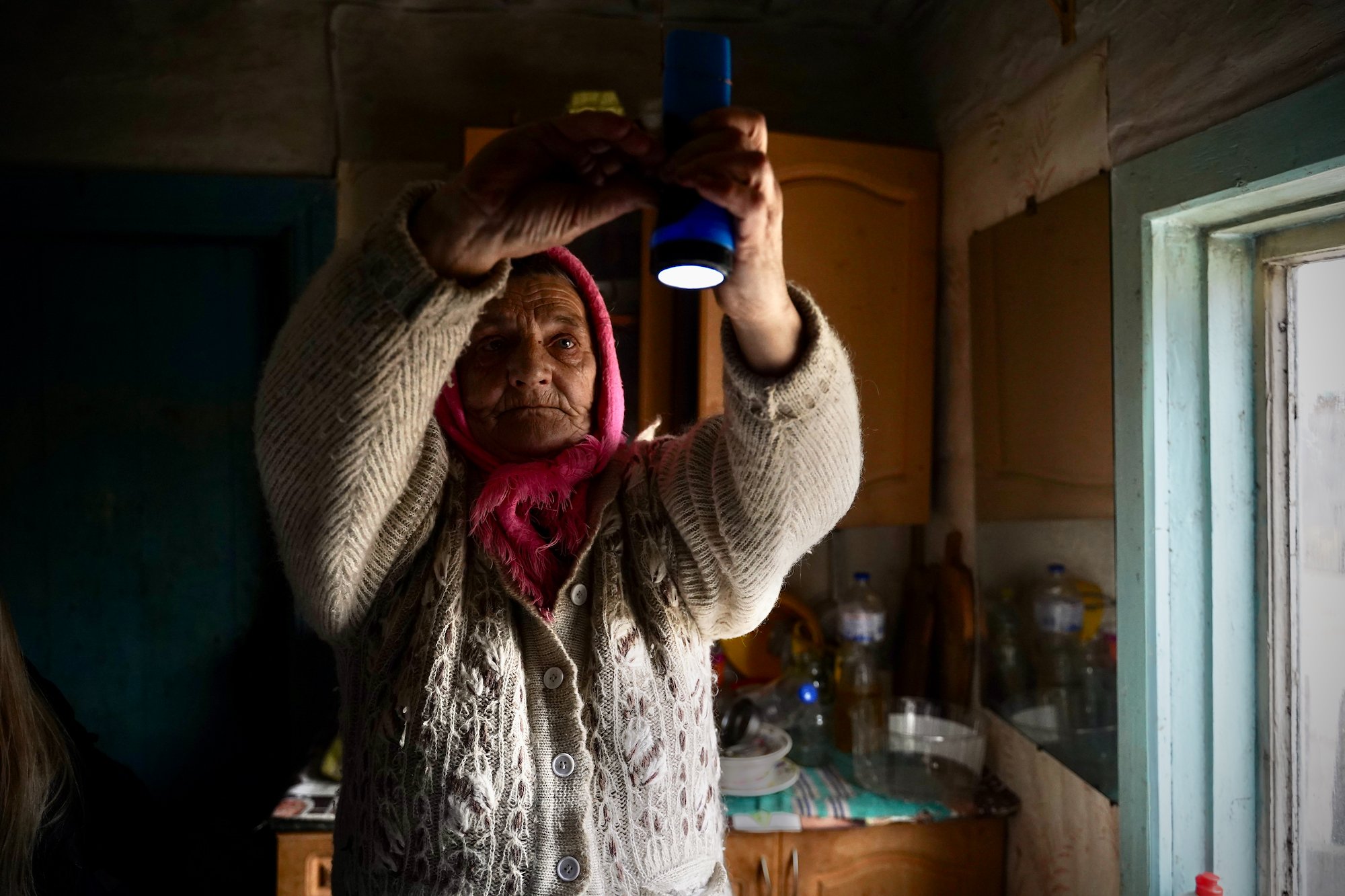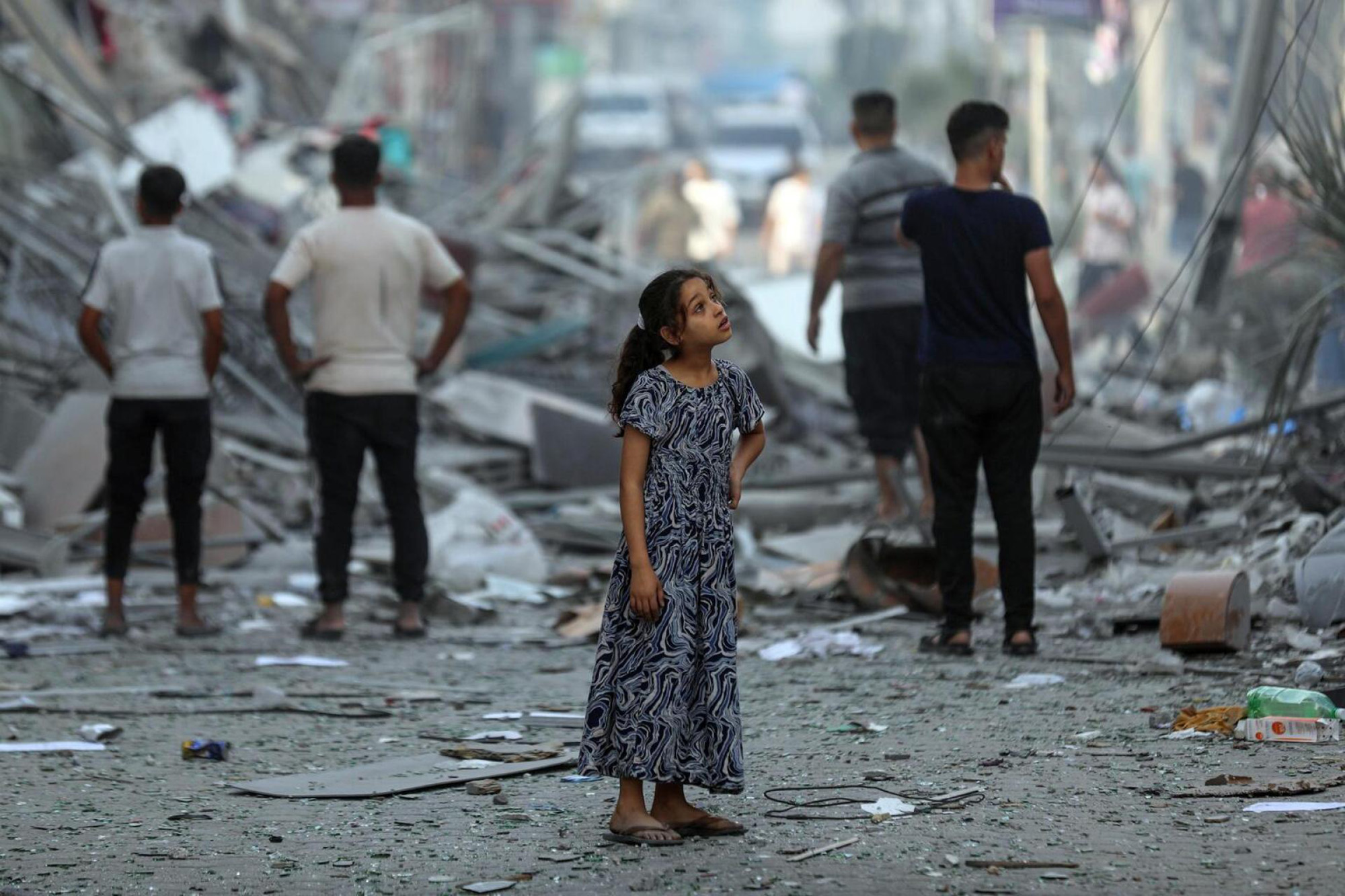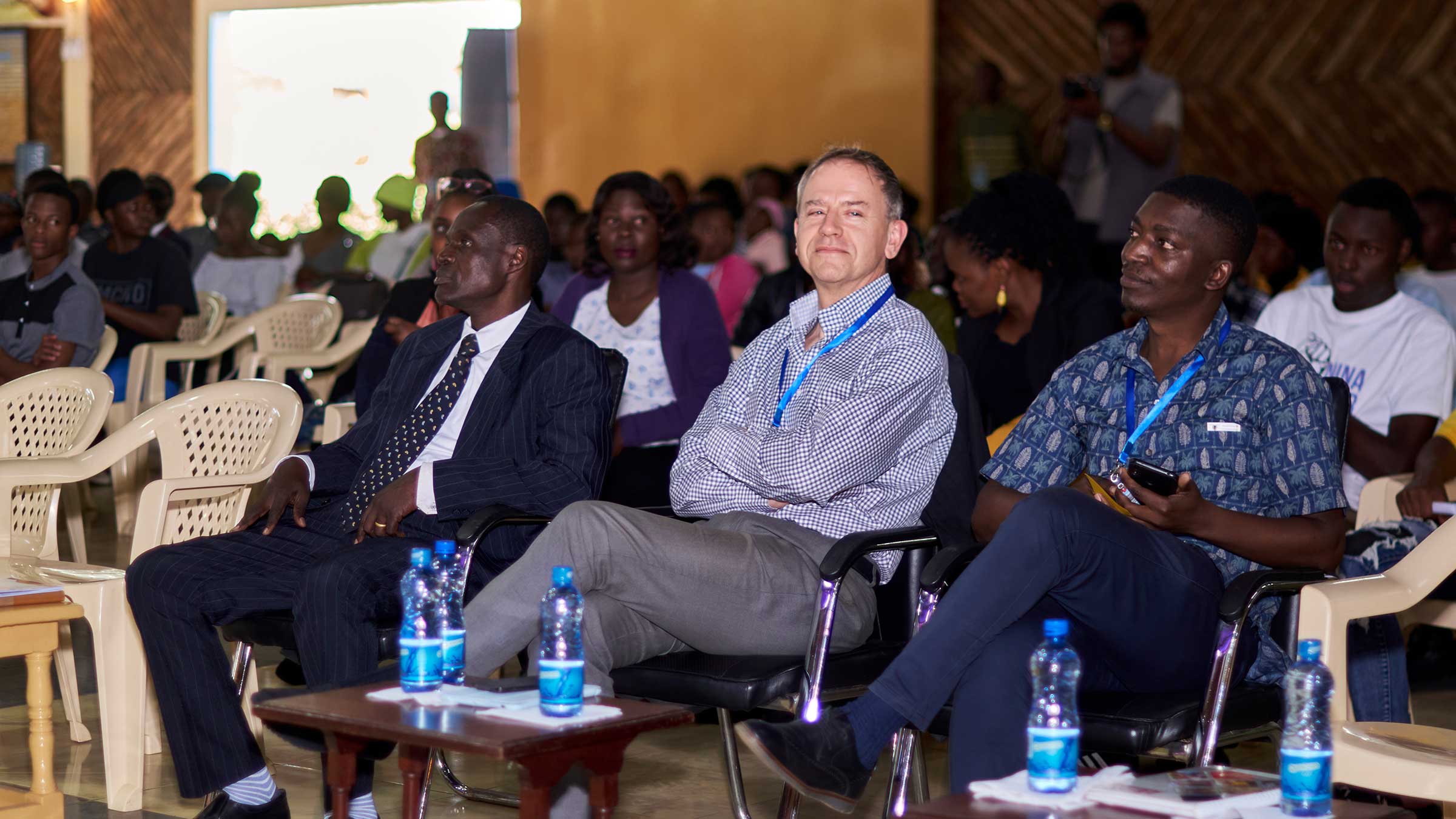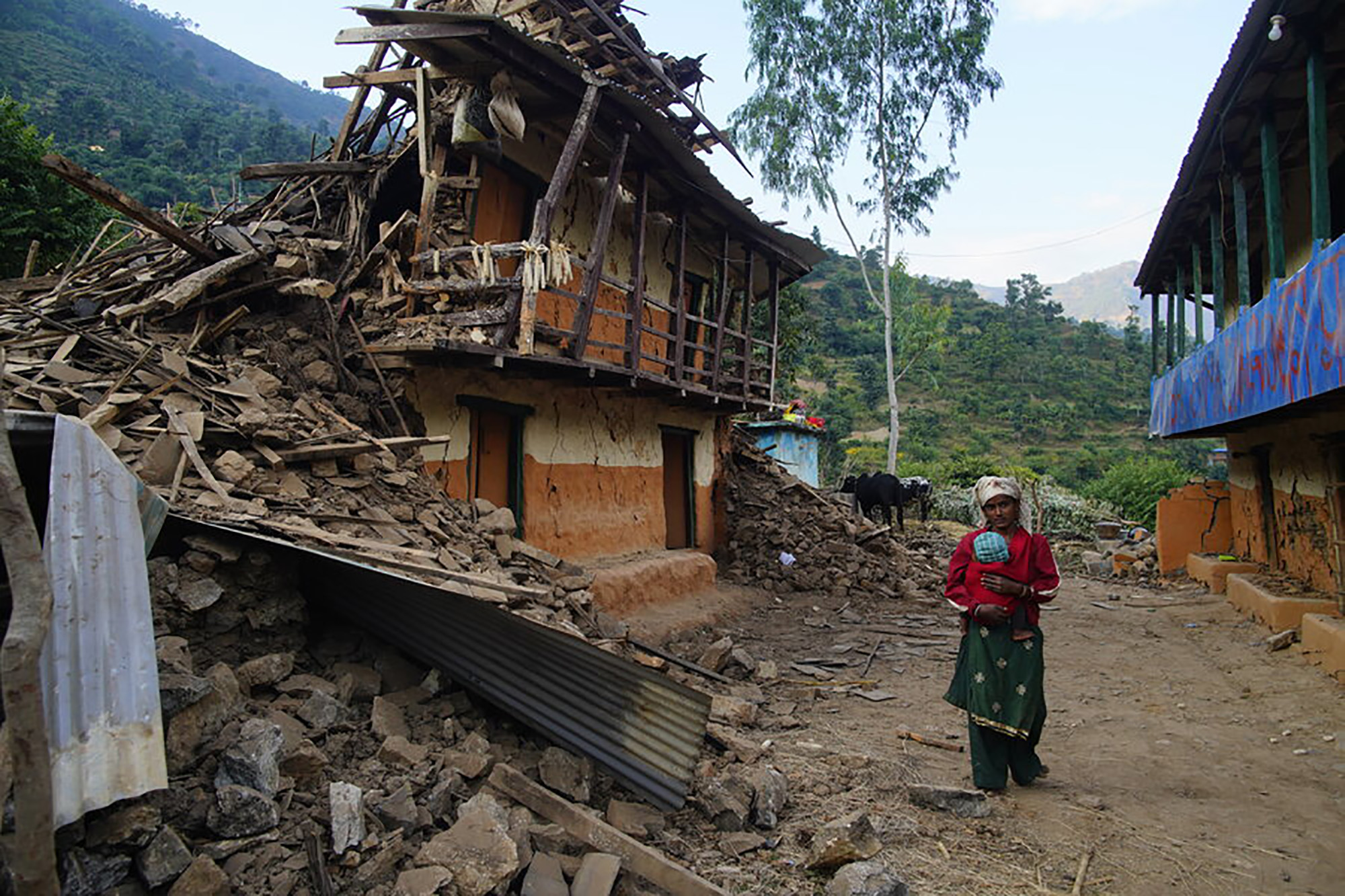Over the past two decades, protracted conflicts, humanitarian needs, increasing frequency of disease outbreaks and heightened geopolitical tensions have continued to proliferate. Emerging crises add to the complexity of humanitarian needs. The International Organization for Migration (IOM) prioritizes the safety and protection of people in challenging crisis response contexts. The first-ever IOM Global Appeal for 2024 aims to serve almost 140 million people, including internally displaced persons and their host communities. Take a look at the images associated with seven of the world's most challenging crisis contexts.
Humanitarian Aid
Some 1.5 million people – including tens of thousands of pregnant women, new mothers and newborns – are now crammed into Rafah, Gaza’s southernmost town, in a desperate search for safety amid war. Tightly packed with nowhere to go, they find the prospect of further military operations in Rafah terrifying. With bombs falling and just a trickle of aid, a public health disaster is worsening. Everyone in Gaza is hungry, including 50,000 pregnant women. UNFPA and partners are providing support in this devastating crisis, but it’s not enough, as they do not have the access required to support all women in need.
The war in Ukraine continues to inflict immeasurable human suffering, death and destruction, putting millions at risk of serious harm and generating grave humanitarian needs. According to the UN humanitarian coordination office (OCHA), in 2023, humanitarian partners reached nearly 11 million people with vital aid and services across Ukraine. In 2024, the response will continue to focus on people with the most severe humanitarian needs across the country, prioritizing those in the front-line communities and neighbouring areas, as well as the most vulnerable displaced people and returnees.
Awad Adam and his wife Nafisa have been on the move since war broke out in Sudan last April. Today, they are among more than 10 million people uprooted from their homes in the world's largest displacement crisis. The World Food Programme (WFP) is working with other humanitarian agencies to respond to the escalating needs. Over the past year, WFP’s assistance has reached some 6.5 million people inside Sudan, as well as many others who have fled to neighboring countries. But needs are skyrocketing. Nationwide, nearly 18 million people face extreme food insecurity. Those trapped in conflict zones face the highest levels of hunger. Reaching them is becoming almost impossible due to security threats, roadblocks and other challenges. Without unfettered access, WFP warns of a looming hunger catastrophe.
The World Food Programme's (WFP) supply chain is facing bottlenecks at the Rafah crossing in Egypt, which is hindering its efforts to assist in Gaza. The border checks on the Gaza side have created bottlenecks, causing truck drivers to wait for days on end. Only two border crossings into Gaza are open, both on the Egyptian side. The needs in Gaza are enormous, and the entire population is acutely food insecure. Over half a million people face the most extreme stage of hunger. Suzanne Fenton, head of communications for WFP's supply chain division, tells us about her experience of being part of a convoy of trucks trying to deliver food to the Gaza Strip.
Pajazit Thaci, an 81-year-old farmer from Kosovo, faced devastating floods in January 2023 that destroyed his wheat fields. The aftermath left his once-fertile land with a thick layer of stones and sand, rendering it unfit for cultivation. Pajazit didn’t just lose his current crop, he also suffered a grave disruption to his usual annual harvest and lost the money of which his family would have lived for three months. He received vouchers from the Food and Agriculture Organization of the United Nations (FAO) to help rehabilitate his land and restart his farming, acknowledging his efforts as a farmer.
Since 7 October, around 85% of Gaza's population, which is about 1.9 million people, have been displaced. The majority of the 24,000 killed and 59,000 injured are women and children. Hunger is widespread, and aid has been insufficient to address the growing humanitarian crisis. The UN has called for commercial supplies to be allowed to enter Gaza to enable markets and the private sector to reopen and provide an alternative to food accessibility. The images and stories in this photo story published by the Office for the Coordination of Humanitarian Affairs (OCHA) depict the harsh reality that Palestinian children face daily.
https://www.unicef.org/The year 2023 has witnessed an unprecedented global humanitarian crisis marked by escalating conflicts, disasters, food insecurity, and disease outbreaks. From Afghanistan to the Democratic Republic of the Congo, from Burkina Faso to Somalia, and beyond, millions of children face grave threats due to violence, violations, and the collapse of essential services. However, amidst the surging needs, funding remains a critical challenge. UNICEF is actively engaged in these regions, providing crucial support such as healthcare system maintenance, treatment for malnutrition, education, psychosocial support, and protection services. The organization emphasizes the urgency of these 13 situations and the critical need for international support to address the complex and interconnected challenges faced by these communities.
"I want my old life back." It’s a powerful reflection of how people feel when they’re in the thick of crisis, when unthinkable tragedy has struck. Because behind each crisis headline, where we read of millions uprooted or facing trauma or conflict, are the individual humans who just want to once again walk their children to school along safe roads, eat a warm meal, go shopping, laugh with friends, live free from fear and dread. As we close 2023, we hear from people around the world who have faced tremendous adversity this year, and see how they're working, with UNDP support, to get back the most basic and also most precious right—that to a ‘normal’ life.
Civilians are dying while the world watches and families are being displaced en masse. UNRWA is calling for immediate access to humanitarian aid and urgent funding for Palestine Refugees.
Ukraine’s second winter since the war began is bringing a sense of fear and unease for millions of people. "There were continuous blackouts last winter," says 71-year-old Lyudmyla from Ozershchyna village, in the north of Ukraine’s Kyiv Region. Now, as another winter arrives, people across Ukraine continue to navigate the path to recovery from the suffering they experienced last winter. Between September 2023 and March 2024, humanitarians are prioritizing winter response in front-line communities and regions facing active hostilities and fighting. They will support the repairs of district heating systems and provide generators, heaters and mobile boilers to hospitals, clinics and social institutions. Families will receive house repair materials, winter clothes, heating appliances and other critical household items.
The escalation of hostilities in the Gaza Strip has had a devastating impact on children and families. Children are dying at an alarming rate, more than 5,000 have reportedly been killed and thousands more injured, and it is estimated that more than 1.5 million people have been displaced. Those families are running out of water, food, fuel and medicines. Their homes have been destroyed; their families torn apart. To respond to the situation for children in Israel and the State of Palestine, UNICEF is calling for a humanitarian ceasefire and the immediate, safe and unconditional release of all abducted children and the prevention and end of any grave violations against children, including killing and injuring.
United Nations top humanitarian aid officer, Martin Griffiths presented a 10-point plan for aid to Gaza. Talking to journalists at UN offices in Geneva, the head of the UN aid coordination office said that the initiative focused on a major expansion of aid into the wartorn enclave, along with a new call for humanitarian ceasefires and the release of hostages taken during Hamas’s 7 October terror attacks on Israel.
Stephen Jackson fell hard for Africa three decades ago, and never looked back. Now the UN Resident Coordinator in Kenya, he channels his passion into his work, bringing together UN agencies to support the continent in its drive for sustainable development.
"Sometimes in this job, you just end up falling in love with the country where you work. Kenya is a very special place, and I think is a country on an extraordinary upwards curve, a very rapid one. You meet incredibly inspiring people here, and I love it to bits."
Africa is a continent set on rapid development, with many observers pointing to Kenya’s maturing democracy and green transition as a model for other nations. In this episode of Awake at Night, Stephen Jackson reflects on Africa’s fascinating diversity, as well as its invigorating self-confidence, resilience and ambition.
The mud structures housing some of Nepal's poorest people never stood a chance against the earthquake that afflicted Nepal on November 4. The survivors of the 6.4 magnitude earthquake, which killed 157 people in the country, are sleeping rough after their homes were destroyed. The World Food Programme is supporting the Government of the Asian country in mobilizing relief supplies for families who find themselves suddenly without their homes and belongings.


